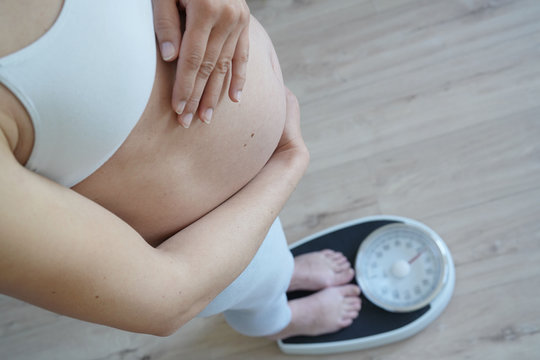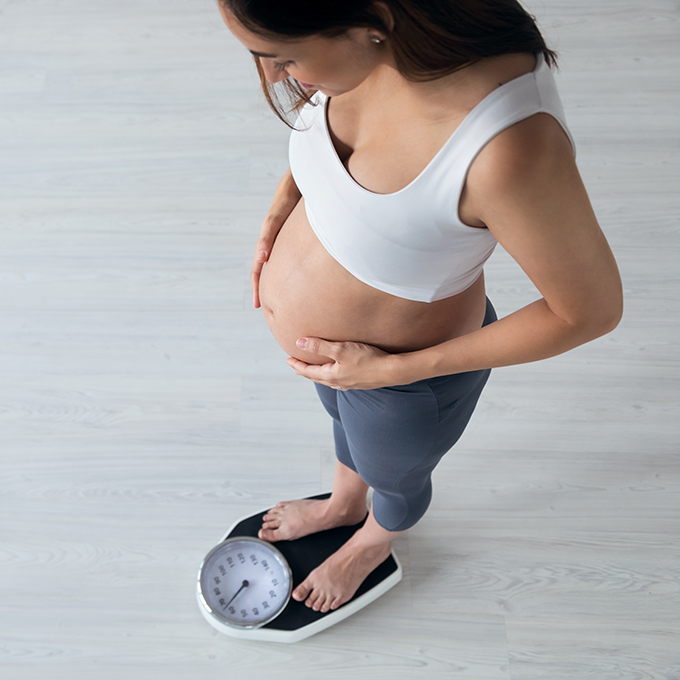- Homepage
- Uncategorized
- Early Pregnancy and Weight Loss: Is It Normal to Lose Weight in the First Trimester?
Early Pregnancy and Weight Loss: Is It Normal to Lose Weight in the First Trimester?
Weight Loss in Early Pregnancy: Is It Normal? Understanding Early Pregnancy Fluctuations
Pregnancy is a journey of excitement, anticipation, and many physical changes. One common concern among expectant mothers is weight fluctuation, especially in the early stages. If you’re wondering whether weight loss in early pregnancy is typical, you’re not alone. While it may seem counterintuitive to lose weight while “eating for two,” weight loss during the first trimester is actually more common than many think. Let’s explore why this happens, when it’s normal, and when it could be a cause for concern, so you can feel more informed and at ease during this unique time.

Is Weight Loss in Early Pregnancy Normal? Understanding First Trimester Changes
The first trimester, spanning from week one to week twelve, is a time of major hormonal shifts and bodily changes. Despite the expectation of immediate weight gain, many women experience weight loss during this period—and in most cases, it’s a normal part of early pregnancy.
The most common cause of weight loss? Morning sickness. But it’s not just nausea that’s at play. Let’s break down the main reasons behind weight fluctuations in early pregnancy.

Why Do Some Women Lose Weight in Early Pregnancy? Breaking Down the Causes
Several factors can lead to weight loss in the first trimester. Understanding these factors can ease any worries and clarify what’s happening in your body.
-
Morning Sickness and Nausea: More Than Just “Morning” Despite its misleading name, morning sickness can occur at any time of day and may last throughout the first trimester for some women. With symptoms like nausea and vomiting, morning sickness can impact your appetite and food intake. Even when you try to eat well, the thought of food might make you feel ill.
When you’re struggling to keep food down or aren’t feeling hungry due to persistent nausea, a calorie deficit can result in weight loss. Additionally, vomiting can expel calories and fluids, contributing further to weight reduction. Though commonly called “morning sickness,” the severity and duration of symptoms vary among individuals.
-
Changes in Appetite and Food Aversions: When Cravings Take a Turn Pregnancy hormones can wreak havoc on your taste buds and appetite. Foods you once loved may become unappealing, and new cravings might emerge. This shift in food preferences can affect your eating habits significantly.
Healthy foods like vegetables or lean proteins might suddenly seem unappetizing, resulting in a less balanced and potentially reduced calorie intake. The focus may shift to blander foods that are easier to tolerate, though they may not be as calorie-dense. These changes can contribute to weight loss, especially if they persist during the first trimester.
-
Metabolic Changes: Your Body’s Adaptations Pregnancy triggers various metabolic changes to support the growing fetus. While these changes are necessary for pregnancy and breastfeeding, some of them can indirectly contribute to weight loss in the early stages.
For example, your basal metabolic rate (BMR), which is the amount of energy your body burns at rest, might slightly increase in early pregnancy. This combined with the energy spent on pregnancy-related physiological changes can lead to more calories being burned. When combined with reduced food intake due to nausea or appetite changes, this metabolic shift can contribute to a slight weight loss.

When Should You Be Concerned About Weight Loss in Early Pregnancy? Spotting Red Flags
While mild weight loss in early pregnancy is usually normal, it’s important to be aware of when it may indicate a more serious issue. Significant or rapid weight loss, especially when accompanied by other symptoms, should be addressed by a healthcare provider.
-
Excessive Weight Loss: Defining “Too Much” Losing a pound or two in the first trimester, or even up to 5% of your pre-pregnancy weight, is typically considered normal, especially if you started at a healthy weight. However, if you lose more than 5% of your pre-pregnancy weight, or if the weight loss is rapid and continuous, it’s a good idea to consult with your healthcare provider. They can assess your situation and rule out underlying medical conditions.
-
Dehydration and Nutritional Deficiencies: Signs to Watch Out For Severe morning sickness can lead to dehydration and nutritional deficiencies. Be on the lookout for symptoms of dehydration, such as:
-
Dark urine or less frequent urination
-
Dizziness or lightheadedness
-
Dry mouth and skin
-
Fatigue
If you experience persistent vomiting and any of these symptoms, or feel weak and unable to eat a balanced diet, seek medical advice. Your healthcare provider may recommend treatments to manage nausea, ensure hydration, and address nutritional gaps.
-
-
Underlying Medical Conditions: Ruling Out Other Issues In rare cases, significant weight loss could be a sign of an underlying condition like hyperemesis gravidarum, thyroid issues, or gestational diabetes. If weight loss is excessive or accompanied by other concerning symptoms, your doctor may perform tests to rule out other conditions and ensure the health of both you and your baby.

Healthy Weight Gain Guidelines During Pregnancy
While weight loss can be normal in the first trimester, pregnancy is ultimately a time for healthy weight gain to support your baby’s growth and development. Weight gain recommendations vary based on your pre-pregnancy Body Mass Index (BMI).
For women starting at a healthy weight (BMI 18.5–24.9), the general recommendation is to gain 25–35 pounds throughout pregnancy, with minimal weight gain in the first trimester. The majority of weight gain will occur in the second and third trimesters, when the baby grows rapidly.
The focus should be on nourishing your body with nutrient-rich foods rather than aiming for a specific number on the scale. A balanced diet that includes fruits, vegetables, whole grains, lean proteins, and healthy fats is essential for your health and the baby’s well-being.
Managing Weight and Nausea in Early Pregnancy: Practical Tips
Managing weight and nausea in early pregnancy can be tough, but several strategies can help:
-
Eat Small, Frequent Meals: This can help prevent nausea and ensure a steady intake of calories.
-
Choose Bland, Easily Digestible Foods: Stick to foods like crackers, toast, rice, bananas, and applesauce.
-
Stay Hydrated: Drink water, clear broths, or ginger ale throughout the day to stay hydrated.
-
Ginger for Nausea Relief: Ginger can help soothe nausea; try ginger tea, candies, or ginger ale.
-
Rest and Relaxation: Stress and fatigue can worsen nausea, so make sure to get plenty of rest.
Remember, every pregnancy is unique. If you’re concerned about weight loss or nausea, reach out to your healthcare provider for personalized advice.
Conclusion: Embrace the Journey with Confidence
Experiencing weight loss in early pregnancy can be worrying, especially when you expect weight gain. However, understanding that it’s often a normal response to hormonal changes, nausea, and appetite changes can provide reassurance. Mild weight loss is typically not harmful to the baby.
The key is to listen to your body, focus on nutrient-rich foods, stay hydrated, and manage nausea. Don’t hesitate to reach out to your healthcare provider if you have any concerns—your health and the health of your baby are what matter most.

FAQ:
-
Is weight loss in early pregnancy normal?
Yes, mild weight loss in the first trimester due to morning sickness is common and usually not a cause for concern. -
When should I be worried about weight loss?
If you lose more than 5% of your pre-pregnancy weight or experience rapid weight loss with other symptoms like dehydration or severe vomiting, consult a doctor. -
Can morning sickness cause significant weight loss?
Yes, in some cases, severe morning sickness can lead to significant weight loss due to persistent vomiting. -
Will weight loss affect my baby?
Mild weight loss typically doesn’t harm the baby, but prolonged or severe weight loss can impact nutrient intake, so it’s essential to seek medical advice if you’re concerned.




